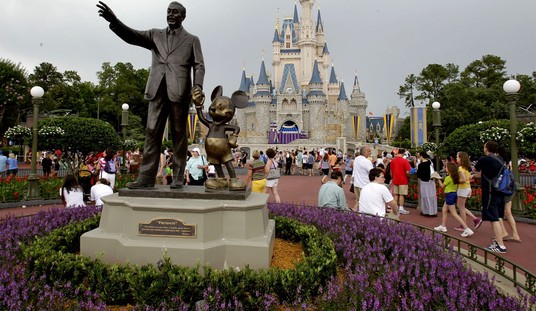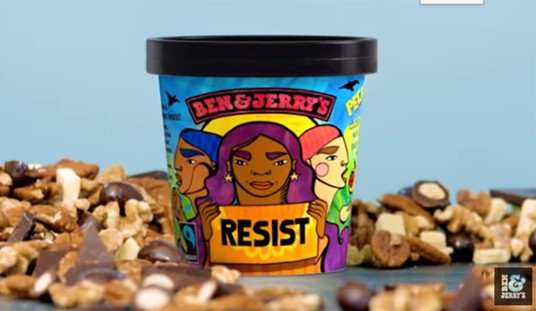
There’s a lot to digest from a dramatic night in Iowa. Here are eight things to take away as we move on to New Hampshire next Tuesday:
1. Yuge Turnout: In my expectations post over at National Review, I said to look beyond the percentages for the vote totals to get a real sense of what Ted Cruz and Donald Trump in particular were doing:
Rick Santorum won in 2012 with just under 30,000 votes; the two largest vote totals for a Republican in past caucuses were Mike Huckabee in 2008 and Bob Dole in 1988, both of whom finished between 40-41,000 votes. Cruz’s argument for his electability in a general election is that he can turn out millions of voters who have stayed home in the past. If that theory holds water, we should see signs of it tonight after his team has had months to tend the Iowa grassroots…if Trump clears 35-40 percent tonight, or if he wins around 30 percent with very high turnout, that should be a sign for the party to get a lot more worried in a hurry about him.
As it turned out, Marco Rubio got a record-breaking 43,000 votes – and finished third. Cruz blew way past the record, bringing in 51,000 votes. The combined strength of the top three bodes very well for the GOP winning Iowa’s 6 electoral votes in November, as it has looked like a state trending red relative to the rest of the nation the past few years. Recall that George W. Bush won Iowa in 2004, but the last two nominees were terrible fits for the state – McCain got slaughtered in the caucuses in both 2000 and 2008, and Iowa was one of just three competitive states (along with New Hampshire and Florida) where Romney lost independents. Turnout was up after being down in 2012 because the field was something other than a depressing choice of lesser evils.
Conventional wisdom said that big turnout would be great news for Trump, and that the possible failure of Trump’s amateur turnout machine would lead to low turnout. Both were wrong. Between Cruz’s data-driven grassroots turnout and the sheer excitement factor that drew a lot of anti-Trump voters to the polls, Trump got outbid.
The “Entrance polls” showed that 36% of the voters had been contacted by the campaign of the candidate they supported, and Cruz did extra-well among those voters, with 31% of them Cruz voters – but 23% were Trump voters compared to 20% Rubio voters, so Trump’s campaign was not as invisible on the ground as some thought.
What does that tell us going forward? It tells us Cruz’s operation is as good as advertised; that Rubio’s is not to be underestimated; but also that Trump may persistently underachieve his polls, but we shouldn’t just blithely assume his supporters will all stay home. He got a lot of votes, after all. As to the Cruz turnout operation, well, as Charlie Dressen once said of an amazing Willie Mays catch, let’s see him do it again. I remain skeptical that Cruz has enough hidden new voters to carry a general election – even the entrance polls found that Cruz did much better among people who have caucuses before (32% to 24% for Rubio and 19% for Trump) than first-timers (who went 31-23 for Trump over Cruz, with Rubio at 22) – but he certainly has the tools to find them if they exist.
2. Trump Is Not Beaten, But Beatable: Because Trump’s campaign is so confidence-driven, even a loss in a place as naturally bad for him as the Iowa Caucuses is damaging, shaking his strongman’s air of invulnerability after a corrosively ugly campaign against Cruz’s Canadian birth and refusal to worship King Corn. The conciliatory tone of Trump’s speech and his return to Twitter today were the right things for a politician to say – but they seemed oddly discordant coming from Trump, who never says the right politician thing. Welcome to Lilliput, Donald.
New Hampshire is the best possible state for Trump. It has a primary, not a caucus; a long history of high voter turnout built on a culture of town meetings, scores of tiny state legislative districts, and frequent contested statewide elections (the Governor is up for re-election every two years, the House and Senate seats flip parties with regularity); and way more secular, white independents than any other state. And Trump has had a double-digit lead in the RCP poll average in New Hampshire continually since early August.
That makes New Hampshire a true must-win for Trump: he loses there, the whole thing collapses overnight. But he’s likely to win, if maybe not quite as easily as the current polling shows. I suspect he also needs to win South Carolina, at which point two big primary wins in the bag would make it possible for him to lose the Nevada caucus and still go into March 1 looking like a winner.
Some of Trump’s loss was due to arrogant missteps – bailing on the last debate, underinvesting in GOTV. But he also remains deeply polarizing within the party with high negatives that will make it a lot harder for him as we get to states where you can’t get close to winning with a quarter of the vote. The fact that Cruz and Rubio between them drew more than twice the number of votes Trump did is a grim sign for Trump’s ability to win states that turn into a contested slugfest.
3. The Rubio Surge Was Real: A lot of people spent the past few weeks mocking the idea that Rubio was gaining steam, and had to choose between the respected Des Moines Register poll showing him at 15, and the late-breaking Emerson College poll with Rubio at 22. But it really does look like Rubio’s strong third-place showing was more a matter of who decided late rather than the polls missing a pre-existing Rubio bloc. And people who put a lot of effort into dampening expectations in the hopes of rushing Rubio’s supporters to Cruz in an anti-Trump panic have nobody but themselves to blame for allowing him to crow about getting to 23%.
Rubio’s Iowa voters show up as a distinct type in the entrance poll – he won the urban and suburban areas (Des Moines and other cities), and won college and post-college-educated voters – basically, the kinds of voters who have more daily contact with people who aren’t conservative Republicans. Cruz won 30% of Republicans, but Rubio narrowly won independents, 22-19 over Cruz, with Trump also at 22 (so really a wash). Trump’s supporters were the polar opposite of Rubio’s in terms of education and geography. Rubio swamped the others among voters looking for an “electable” candidate, while Cruz won the “shares my values” voters and Trump dominated the “tells it like it is” voters:

Rubio cleaned up among late deciders, while Trump’s strongest group was people who decided a long time ago:

Note that Carson netted almost as many day-of-the-caucus deciders as Trump, despite rumors he was ending his campaign. And Cruz dominated “Very conservative” voters, Trump won the moderates, and Rubio took the “somewhat conservative” voters in between:

All of which bodes potentially well for Rubio in states that have a different demographic profile than Iowa. (There were surprisingly small age and gender splits in the poll, and given the unreliability of entrance polls, I would not put too much stock in smaller differences).
4. Fall of the House of Bush
Jeb is now spinning Iowa as being a state where he couldn’t compete, but let’s recall that Iowa was once very friendly terrain for his family:

After finishing with barely a tenth of Rubio’s support in Iowa, everybody knows it’s over but Jeb, and yet his money machine rolls on. And sending the signal that New Hampshire matters to Jeb is a double-edged sword. Right now, Jeb’s one remaining asset is the implicit threat that he will stay in the race even if nobody ever votes for him, just pouring his money into attack ads against Rubio. Those ads ultimately failed in Iowa – like an offensive artillery barrage in World War I, they kept Rubio’s head down until the end, but once Jeb actually had to get his own votes out, Rubio’s support was still there, and indeed stronger than it had been at the start.
5. Who Goes Out Next?
It’s hard to see what justification Carson, Paul, Fiorina and Santorum have for continuing at this point – despite a respectable showing for Carson and a face-saving one for Paul. But the three “Establishment” governors are really in a do-or-die situation in New Hampshire.
The guy who seems like he ought to re-evaluate before New Hampshire is Christie. Abandoned by Terry Branstad in Iowa, he finished below 2%. There have been 21 polls in New Hampshire since January 1. Christie has been in single digits the last 15 in a row. Christie was third in New Hampshire in the first two of those polls, one of them a tie at 11 with two candidates at 10. Since then, he’s been fourth 3 times, fifth 7 times, and sixth 9 times:

For a candidate without a ton of money, coming off a state where three of the people above him did well, that’s just too crowded a field with too little time to get new traction.
6. Hello, Diversity
For all the talk about Trump, Ted Cruz made history as the first Hispanic candidate to win a state in a presidential contest, and the three “non-white” candidates (Cruz, Rubio and Carson) took over 60% of the vote – in a Republican primary in one of the nation’s whitest states. Surely that is something worth remarking.
7. Goodbye Governors
Much as I believe public-sector executive experience is a valuable thing for a President, the voters of Iowa disagreed. 48% in the entrance poll said being outside the political establishment was more important than political experience; 35.5% voted for the three candidates who had never held office before; and Ben Carson alone won more votes (9.5%) than the 8.2% split among the five Governors left in the field (Jeb, Christie, Kasich, Huckabee and Gilmore – Huck dropped out immediately after the voting, joining veteran governors Bobby Jindal, Scott Walker, Rick Perry and George Pataki).
Overall, of the 17 major GOP candidates, 9 have a decade or more of experience in elective office, and 6 of those have dropped out, with a seventh (Rick Santorum) probably on his way soon, leaving only Rubio and Kasich.
8. Who Has The Real Populist Problem?
Donald Trump got 24% of the vote. Bernie Sanders got 48% in the Democratic primary, and at this writing stands at 55.8% in the RCP average in New Hampshire to Trump’s 33.7%. And the entrance polls showed deep divides in the Democratic electorate, with younger voters overwhelmingly for Bernie. The Democrats’ coalition will have even bigger problems with socialism in the coming years than the GOP coalition has with Trumpism.












Join the conversation as a VIP Member